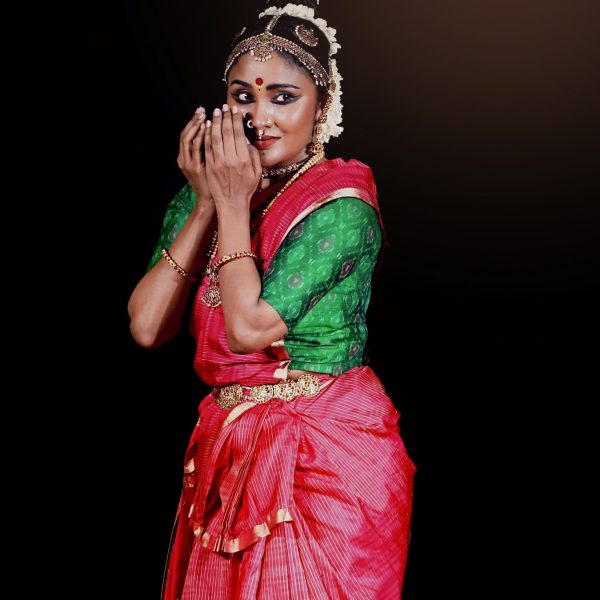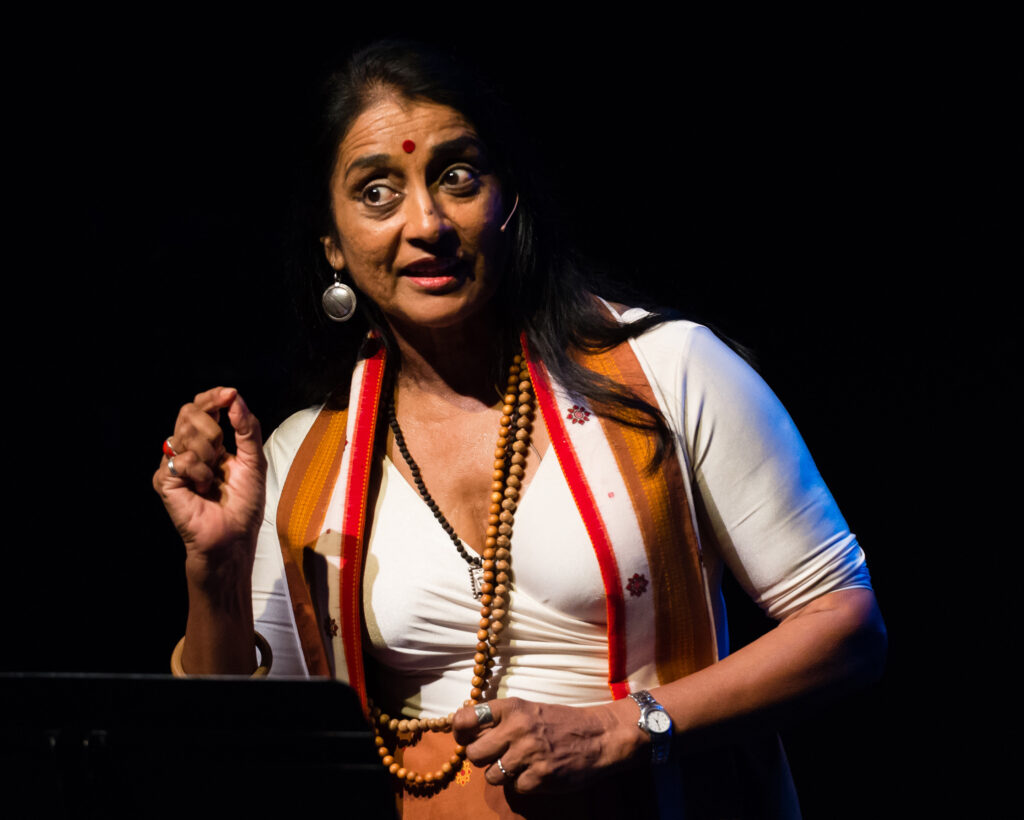Dancing the Gods: Night One - Sreelakshmy Govardhanan
(Solo Kuchipudi with Live Music)


Our annual Dancing the Gods festival of Indian Dance celebrates its 12th year, featuring two of India’s leading dancers. Each night begins with a slide presentation by Rajika Puri, festival curator and acclaimed dance storyteller.
Friday, April 14, 2023
Doors: 6:30 PM | Lec Dem by Curator Rajika Puri: 7 PM | Performance: 8 PM
Ailey Citigroup Theater – 405 W 55th St, Manhattan
Tickets: $35 | $45 | $55
Night One: Sreelakshmy Govardhanan – ‘Sampradaya’ (Solo Kuchipudi with live music)
Ensemble:
Vocal: Ramya Kapadia
Nattuvangam: Kasi Aysola
Mridangam : Bala Skandan
Violin : Parthiv Mohan
Sreelakshmy Govardhanan is a creative dancer, choreographer and teacher of Kuchipudi. She is the Founder and Artistic Director of the Avantika Space for Dance, a center for learning, performance and research, and her dance activity includes workshops, classes, seminars and lecture demonstrations. In this solo performance set to live music, she will explore the Nritta, Nrutya and Natya elements of Kuchipudi through a repertoire set in the format of Margam (performance set in a traditional format).
About Festival Curator and Presenter Rajika Puri


Rajika Puri performed internationally in solo recitals of Bharatanatyam and Odissi for several years, before she was launched into western theatre by Julie Taymor in Lincoln Center Theater’s “The Transposed Heads”. The success of that role encouraged her to develop a form of danced storytelling she calls ‘Sutradhari Natyam’ in which she intersperses an English narration with excerpts from dances, spoken rhythms and chants as well as songs in Indian languages. In her full-length work: ‘Eleni of Sparta’ or ‘Helen of Troy’, she even sings in ancient Greek. Rajika has performed all over Latin America, Europe, Malaysia, the US and India; in New York, at the Asia Society and Ailey Theatres.
About Kuchipudi
Kuchipudi is a dance form rooted in the theatrical and dance traditions of Andhra Pradesh, named for the village – also known as Kuchelapuram – where it originated. Traditionally it was performed by troupes of male actor-dancers who presented full-length plays, often lasting all night, to celebrate festivals dedicated to Lord Vishnu. Alongside this tradition developed a solo form, which is today popular around the world.
